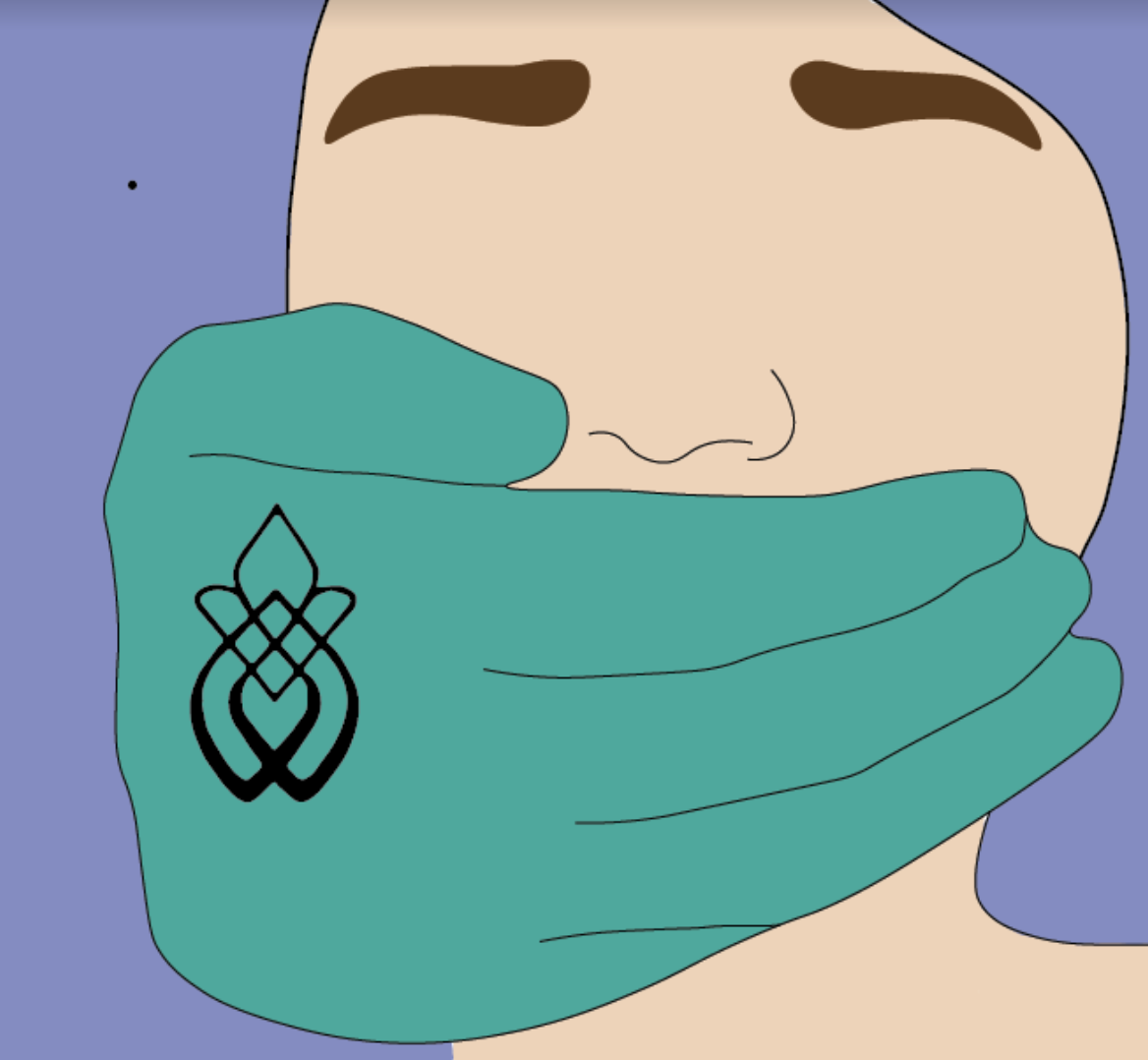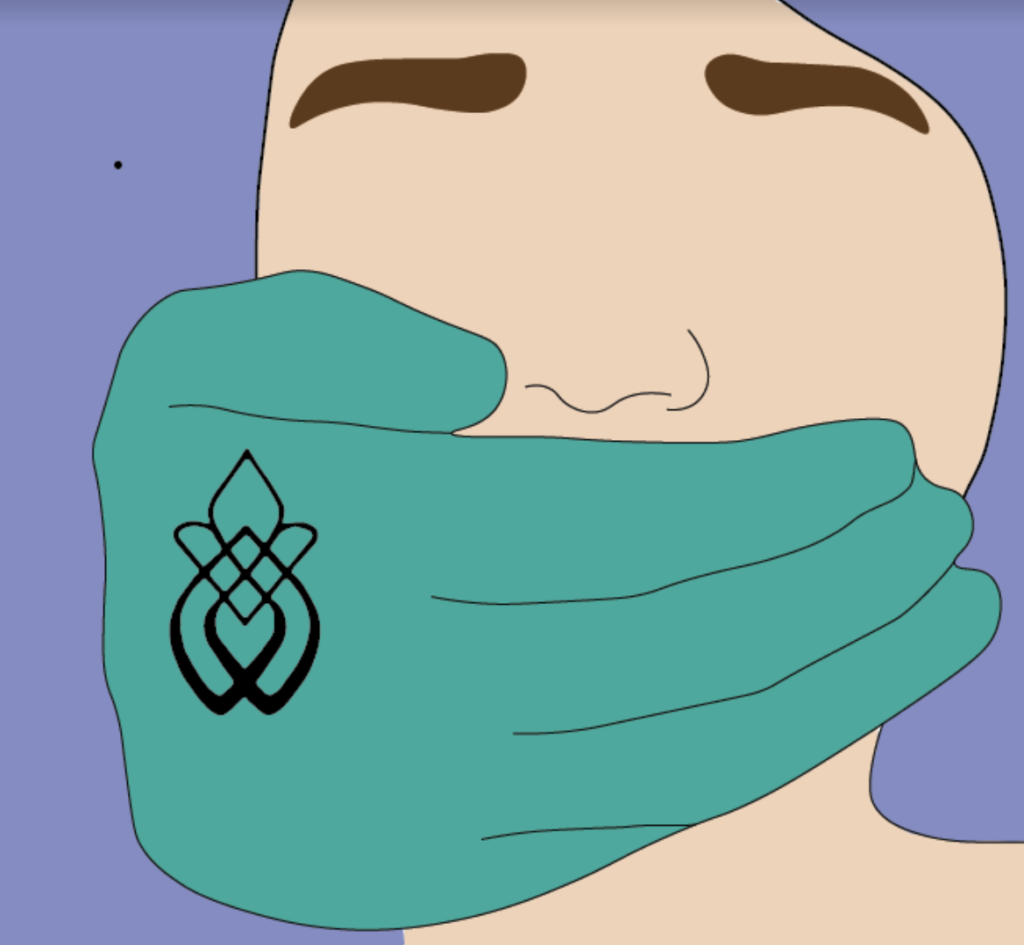
By Leanne Hamilton and Hannah McKelvey
Executive Editors
*It is our duty as journalists to be the voice of St. Mike’s and our community. We have decided to release this story at this time, even with the recent events, because of the timeliness.*
At least once every semester we get an email from Public Safety that states the following: “Saint Michael’s College Public Safety received a report of a sexual assault reported by a XXX student. The incident was reported to have occurred XXX. An investigation by Public Safety and Student Affairs is ongoing.” Followed by a list of a bunch of numbers and sources, people can contact if they want to report any crimes or suspicious activity. They even include ways to prevent sexual assaults in the email, such as “Never pressure or coerce someone into sexual activity” and “When engaging in sexual activity, be sure that you and your partner(s) are coherent and not incapacitated for any reason.” Public Safety concludes the email with potential penalties if found guilty of sexual assault on a school level as well as criminal and further information regarding school policies on sexual assaults.
While this email is jam-packed with vital information to the St. Mike’s community and the victims of these horrendous acts, an email is not enough. Every 73 seconds someone is sexually assaulted in the United States, reports the Rainn organization, which is the nation’s largest anti-sexual violence organization. 11.2 percent of all college students in america (undergrad and graduate) will experience sexual assault. Only 230 sexual assaults out of 1,000 are reported to police. These are scary numbers and statistics for many reasons.

Two years ago, the school installed virtual learning courses on two things: drinking and sexual assaults. Every incoming freshman is required to complete both of these before picking up their room keys. Doug Babcock, director of Public Safety, holds self-defense
classes for anyone who wants to participate. But why are these the only times that sexual assault is addressed at an administration level?
On March 5, 2020 a lawsuit filed by Plaintiff Jane Doe vs. the Defendant SMC and Defendant Daniel Dromeshauser surfaced in public records. Jane Doe filed a lawsuit against the school for negligence to her well-being after reporting being sexually assaulted in a classroom within the campus academic buildings on March 4, 2018, by Defendant Dromeshauser. The lawsuit asserts that the Defendant not only assaulted Jane Doe, but made a video of the assault and sent it to his friends and lacrosse teammates via Snapchat around campus. In 2018 when a campus investigation had been opened, Jane Doe claimed her well-being was not accommodated. Among the assertions:
The assault took place in a classroom in Jean-Marie where one of Jane Doe’s courses was scheduled. When Jane Doe requested that the class location be changed she said she was told to drop said class instead of the class being moved.
Defendant Dromeshauser was never restricted from certain areas on campus until later in the investigation, and even then was still allowed to attend classes and eat in the dining hall. The lawsuit asserts that the college’s negligence caused her further severe mental and emotional trauma. We reached out to Jane Doe’s lawyers for comment, however, they declined.
Public Safety is required by federal law to publish the Clery Report each year of all the reported crimes that take place at the college. The 2018 report shows that there were three reported cases of sexual assault (rape). Those statistics do not correlate to one another. While the Clery report provides us with a visual representation for the number of assaults reported on campus, the Clery report cannot accurately represent all cases of assault as many go unreported.
“We know that across all fields, that sexual assault is under reported. We know we don’t have everyone that has had something bad happen to them coming forward, and saying this has happened to them,” said Doug Babcock, director of Public Safety.
Let’s open up the conversation going back to why we only ever get one or two emails a semester about sexual assault. “It’s called a timely warning,” explained Babcock. “There’s requirements for what constitutes a timely warning. The first thing is, as a primary consideration, is a continuing or ongoing potential threat to the community.” Something that happened six months prior may not constitute an ongoing threat if that threat hasn’t been present since six months ago. If it were something that happened a week prior, then the potential for that threat to continue the upcoming weekend is more likely and would potentially be a timely warning.
While we don’t want an overload of emails as that could desensitize the seriousness of these incidents, we wish the conversation wasn’t limited to just these emails and then dropped. It would be nice to maybe hear that the investigation they opened has been closed and we can know whether or not the student accused is on campus or has been suspended. As well, it might be nice that there be support sent out like there is when someone passes away in our campus community. Grief counselors are made readily available for students and sometimes when the situation calls for it, Kathy Butts, the head of grief counseling, makes her way to individual classrooms to let students know what is available to them. They continue the conversation of this deceased member, not leaving it to be explained in one email. Why is sexual assault not done in this same manner? It is something that has affected one of our community members and could potentially affect others in the community. Let us know there is help.
Ways you can report
Even if you know how to go about reporting, are you aware of what happens once an incident is reported? Catherine Welch, St. Michael’s Title IX director, and Doug Babcock of Public Safety, both have different steps to take in order to follow the same Policy. For Public Safety, they take as much action as the reported individual wishes. They follow the individual and their choice to have an on campus investigation only or the choice to take further legal action with the Colchester police off campus. “The information the person wants shared will be shared with administration. If they want contact, then we follow up with them and we say ‘here are the rights and options you have’ and we go through this whole conversation of what we can do on campus and what we can do off campus” said Babcock.
“You have the right to not have your academic and educational experience interfered with or damaged. That means that if the person that is the respondent in the case is in a class with the person that is reporting in, we will remove the person that is the respondent out of that class. If there is not the evidence to start this way, they are removed from campus, academically or suspended.” In other words, according to Title IX, if the the reporter of the alleged sexual assault has a class with the person who they are accusing, the school will remove them to follow Title IX regulations.
So, the report has been made, Public Safety has spoken with the person who makes the report, and has given them their rights and options of what can happen on campus, what next? “You also have at the same time the option of also going to law enforcement. When you do that, they often want to be the interviewing agency first, their standard for evidence is higher than the campus. That will be a criminal court process, that is constitutional law,” explained Babcock.
Within the lawsuit, Plaintiff Jane Doe claims she was advised by Public Safety not to get police involved. Asking Doug Babcock if Public Safety ever advises against getting law enforcement involved during investigations, he denies they’d ever tell a reporter that. “We would say ‘we have our process on campus that is strictly on campus, if you want to talk to someone about a criminal process, we can bring someone down’.”
When an assault is reported and Public Safety is involved, their main concern is for the well-being of the reporter, Babcock said. “As much as it is a physical act, it’s a crime of power. When a person has this very intense experience that’s emotionally traumatizing, where their power is removed, the process to work through that can’t continue taking power away.” Babcock said he could not comment on the lawsuit as he was not aware of it.
Once the initial meeting with Public Safety is conducted the next steps that are taken are the person reporting going and talking to Catherine Welch, the Title IX coordinator. “I am not a decision maker in the process, I am kind of the shepherd to make sure the process runs smoothly, help students, provide any accommodations that the student might need, make sure that we follow the process,” Welch said.
If the student does want to follow through with an investigation, a team of trained lawyers who handle sexual assault cases on campuses across Vermont and New York come in, interview both parties involved, friends of those people, gather text messages, photos, videos, or Snapchat that may have been exchanged about this incident, and compile all the information together. Before further steps are taken, both students have the opportunity to see the materials and say whether or not there is more information that needs to be looked into. After all the critical information is gathered, both students have the option to write a statement to the determination panel and a letter of character. “The determination panel are three faculty or staff members that are trained to look at all the materials and make a decision. Their decision is simply to determine if the St. Michael’s College Sexual Misconduct Policy has been violated or not, and then that goes to the dean of students for sanctioning,” Welch said. This is a rotating panel of trained people from across campus. So if both student or panel members do not feel comfortable being a part of the case, they can rotate people out and put in another member.
St. Michael’s College is an educational system so when it comes to sanctions if the panel finds that the sexual misconduct policy has been violated, two things could happen, suspension or dismissal from the college. For more information on St. Mike’s Title IX and Sexual Respect Policies, please visit
Moving forward, with this new-found knowledge, we as women in college feel like this is a slap in the face, clearly there are holes in the system. This is our wake up call to open up a conversation on campus around the topic of sexual assault. By doing that maybe, just maybe, more people will feel comfortable reporting what they saw or standing up before things escalate that far. If our campus is informed and up to date around the topic of sexual assaults, students can have a say in the sexual respect and sexual misconduct policy. We can keep both of those policies up to date and make sure they are doing what is best for our campus. In a perfect world, these crimes of stripping power would not happen, but the world is not perfect and no one deserves to deal with this alone. By opening up the conversation, people might not be so scared and not feel so alone.

